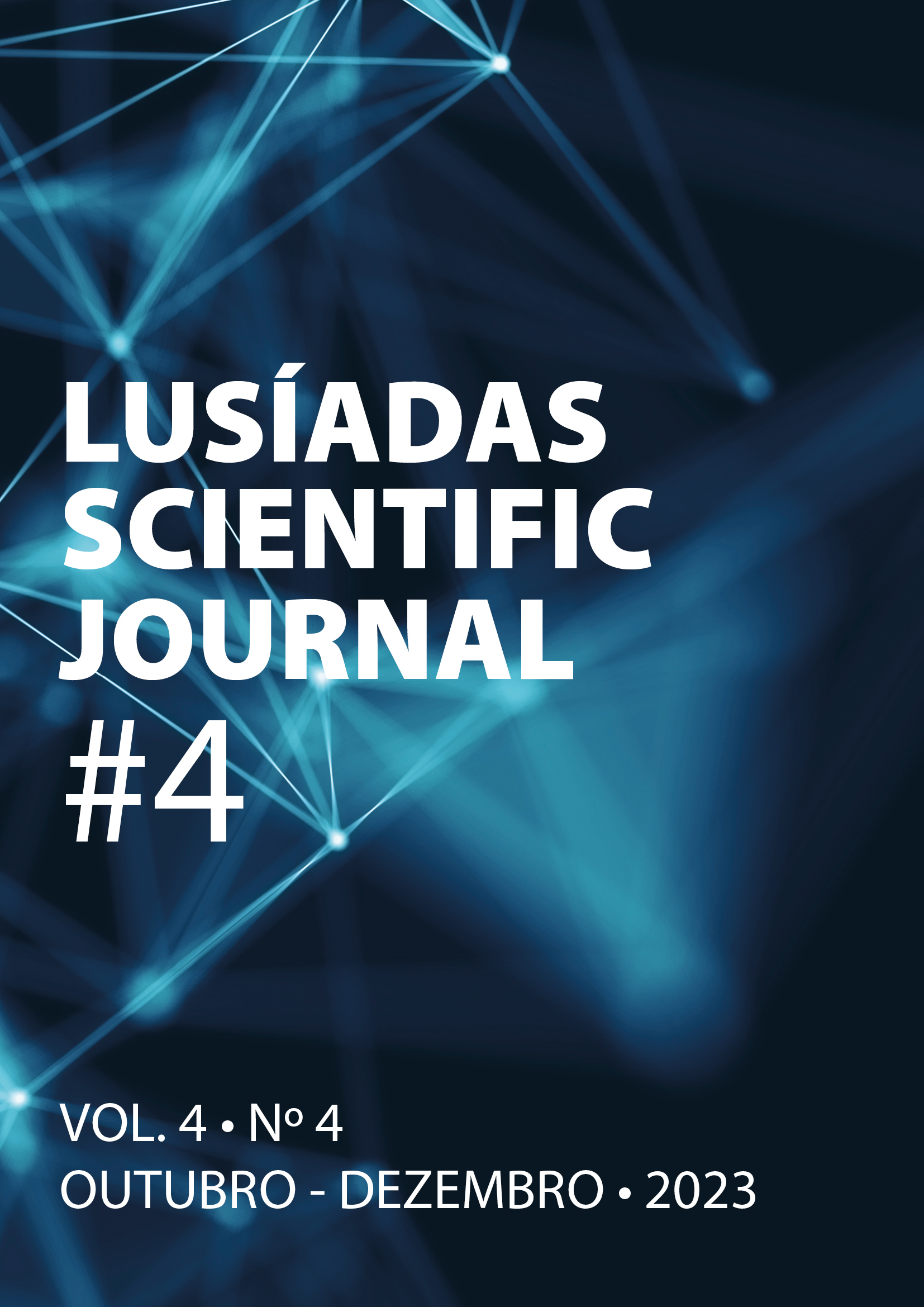Revisão Narrativa
Referenciação de Pacientes aos Cuidados Paliativos Usando Modelos Preditivos de Inteligência Artificial
Conteúdo principal do artigo
Resumo
A Inteligência Artificial trouxe a possibilidade de arquivar e processar quantidades enormes de informação, nomeadamente informação de saúde, sendo esta muito extensa e complexa. Os Cuidados Paliativos têm como objetivo fornecer apoio a pacientes com doenças graves, prolongadas, progressivas e incuráveis, procurando aliviar sintomas, melhorar a qualidade de vida e atender às necessidades emocionais e psicológicas dos pacientes e das suas famílias. A Inteligência Artificial tem o potencial de revolucionar a identificação e encaminhamento atempados de pacientes que beneficiariam de Cuidados Paliativos, por forma a discutir atempadamente com estes e com as suas famílias, as expetativas e perspetivas de fim de vida.
O acesso antecipado aos CP tem inúmeros benefícios, incluindo bem-estar emocional, melhores mecanismos de coping, redução de custos no tratamento, juntamente com menos hospitalizações e mais curtas.
Com esta revisão narrativa, pretendemos perceber se a utilização concomitante de modelos de Inteligência Artificial efetivamente tem benefícios para o paciente, melhorando a sua qualidade de vida.
Detalhes do artigo

Este trabalho encontra-se publicado com a Licença Internacional Creative Commons Atribuição 4.0.
Referências
Busnatu S, Niculescu AG, Bolocan A, Petrescu GED, Paduraru DN, Nastasa I, Lupusoru M, Geanta M, Andronic O, Grumezescu AM, Martins H. Clinical Applications of Artificial Intelligence-An Updated Overview. J Clin Med. 2022;11:2265. doi: 10.3390/jcm11082265
World Health Organization. WHO Definition of Palliative care [Internet]. [cited 2023 Aug 16]. Available from: https://www.who.int/news-room/fact-sheets/detail/palliative-care
Wilson PM, Ramar P, Philpot LM, Soleimani J, Ebbert JO, Storlie CB, et al. Effect of an Artificial Intelligence Decision Support Tool on Palliative Care Referral in Hospitalized Patients: A Randomized Clinical Trial. J Pain Symptom Manage. 2023;66:24–32. doi: 10.1016/j.jpainsymman.2023.02.317.
Peruselli C, Panfilis L De, Gobber G, Melo M, Tanzi S. Intelligenza artificiale e cure palliative: Opportunità e limiti]. Recenti Prog Med. 2020;111:639–45.
de Hond AA, Leeuwenberg AM, Hooft L, Kant IM, Nijman SW, van Os HJ, et al. Guidelines and quality criteria for artificial intelligence-based prediction models in healthcare: a scoping review. NPJ Digit Med. 2022;5(1):2. doi: 10.1038/s41746-021-00549-7.
Blanes-Selva V, Doñate-Martínez A, Linklater G, Garcés-Ferrer J, García-Gómez JM. Responsive and minimalist app based on explainable ai to assess palliative care needs during bedside consultations on older patients. Sustainability. 2021;13:17.
Oliveira T, Silva A, Satoh K, Julian V, Leão P, Novais P. Survivability prediction of colorectal cancer patients: A system with evolving features for continuous improvement. Sensors. 2018;18:2983. doi: 10.3390/s18092983.
Soltani M, Farahmand M, Pourghaderi AR. Machine learning-based demand forecasting in cancer palliative care home hospitalization. J Biomed Inform. 2022;130:104075. doi: 10.1016/j.jbi.2022.104075.
Rhodes RL, Kazi S, Xuan L, Amarasingham R, Halm EA. Initial development of a computer algorithm to identify patients with breast and lung cancer having poor prognosis in a safety net hospital. Am J Hosp Palliat Care. 2016;33:678-83. doi: 10.1177/1049909115591499.
Jung K, Sudat SEK, Kwon N, Stewart WF, Shah NH. Predicting need for advanced illness or palliative care in a primary care population using electronic health record data. J Biomed Inform. 2019;92:103115. doi: 10.1016/j.jbi.2019.103115.
Zhang H, Li Y, McConnell W. Predicting potential palliative care beneficiaries for health plans: A generalized machine learning pipeline. J Biomed Inform. 2021;123:103922. doi: 10.1016/j.jbi.2021.103922.
Gajra A, Zettler ME, Miller KA, Blau S, Venkateshwaran SS, Sridharan S, et al. Augmented intelligence to predict 30-day mortality in patients with cancer. Future Oncol. 2021;17:3797-807. doi: 10.2217/fon-2021-0302.
Pierce RP, Raithel S, Brandt L, Clary KW, Craig K. A comparison of models predicting one-year mortality at time of admission. J Pain Symptom Manage. 2022;63:e287–93. doi: 10.1016/j.jpainsymman.2021.11.006.
Parikh RB, Manz CR, Nelson MN, Evans CN, Regli SH, O’Connor N, et al. Clinician perspectives on machine learning prognostic algorithms in the routine care of patients with cancer: a qualitative study. Support Care Cancer. 2022;30:4363–72. oi: 10.1007/s00520-021-06774-w.
Kelly M, O’Brien KM, Lucey M, Clough-Gorr K, Hannigan A. Indicators for early assessment of palliative care in lung cancer patients: A population study using linked health data. BMC Palliat Care. 2018;17:37. doi: 10.1186/s12904-018-0285-5.
Chalkidis G, McPherson J, Beck A, Newman M, Yui S, Staes C. Development of a Machine Learning Model Using Limited Features to Predict 6-Month Mortality at Treatment Decision Points for Patients With Advanced Solid Tumors. JCO Clin Cancer Inform. 2022;6:e2100163. doi: 10.1200/CCI.21.00163.
Agarwal R, Domenico HJ, Balla SR, Byrne DW, Whisenant JG, Woods MC, et al. Palliative Care Exposure Relative to Predicted Risk of Six-Month Mortality in Hospitalized Adults. J Pain Symptom Manage. 2022;63:645-53. doi: 10.1016/j.jpainsymman.2022.01.013.
Courtright KR, Chivers C, Becker M, Regli SH, Pepper LC, Draugelis ME, et al. Electronic health record mortality prediction model for targeted palliative care among hospitalized medical patients: a pilot quasi-experimental study. J Gen Intern Med. 2019;34:1841–7. doi: 10.1007/s11606-019-05169-2.
Avati A, Jung K, Harman S, Downing L, Ng A, Shah NH. Improving palliative care with deep learning. BMC Med Inform Decis Mak. 2018;18:122. doi: 10.1186/s12911-018-0677-8.

